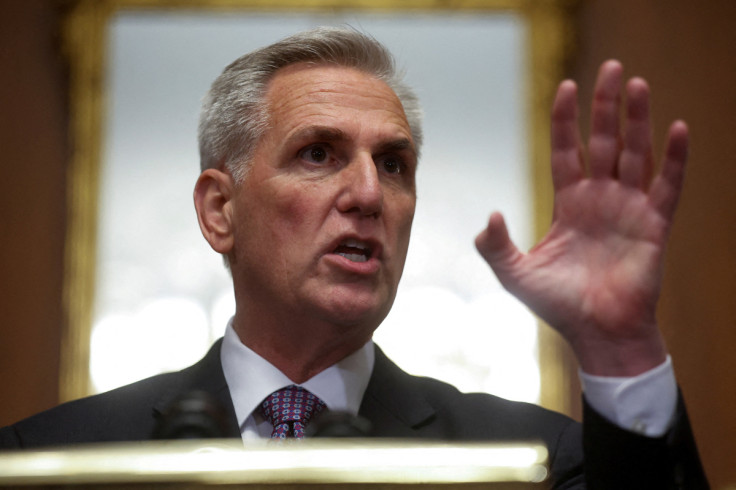US Debt Ceiling Battle Rekindles Debate Over Ukraine Funds

The battle to raise the $31.4 trillion U.S. debt ceiling rekindled debate in Congress over funding for Ukraine, as House of Representatives Speaker Kevin McCarthy said on Tuesday he had no immediate plans to take up legislation to boost defense spending beyond what was in last week's deal.
McCarthy's comments could signal a tougher road through Congress when President Joe Biden next asks for additional funds for Ukraine. The House and Senate approved $48 billion for the Kyiv government in December, before Republicans took control of the House.
That money is expected to last at least through Sept. 30, the end of the currently fiscal year. Lawmakers said Biden is expected to request more funds by August or September.
The debt ceiling agreement, which Biden signed into law on Saturday, capped national security spending in the year ending Sept. 30, 2024 at $886 billion, the amount Biden requested but below what congressional defense hawks wanted.
After some Republicans threatened to vote against the deal over the tightened defense spending, the Senate's Democratic and Republican leaders promised that the caps would not prevent the chamber from passing supplemental spending legislation to provide more money for Ukraine and the Department of Defense.
However, McCarthy, who negotiated the agreement with Biden, said he would not automatically allow a vote on a supplemental in the Republican-led chamber.
"It doesn't matter if it's Ukraine or anything else. The idea that someone wants to go do a supplemental after we just came to an agreement is trying to blow the agreement," McCarthy told reporters at the Capitol.
McCarthy said he supported Ukraine and helping Ukraine to defeat the Russian invasion but would want more information before moving ahead.
"I'm not giving money for the sake of giving money. I want to see what is the purpose, what is the outcome you want to achieve and then show me the plan to see if I think that plan actually can work?" he said.
House Republicans want any money for Ukraine - or other priorities - to move ahead via "regular order," with Congress debating and passing the 12 appropriations bills that provide funding for the government.
© Copyright Thomson Reuters 2024. All rights reserved.











